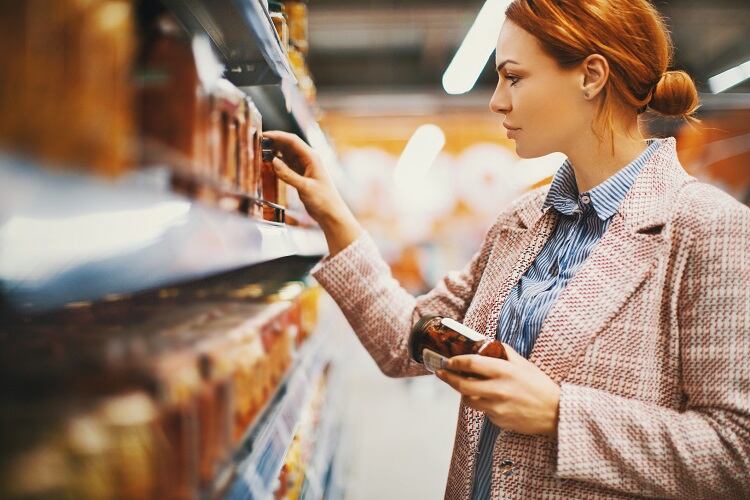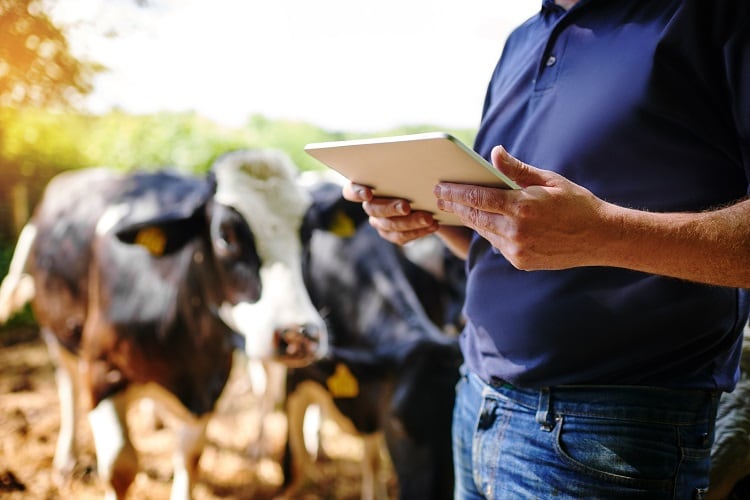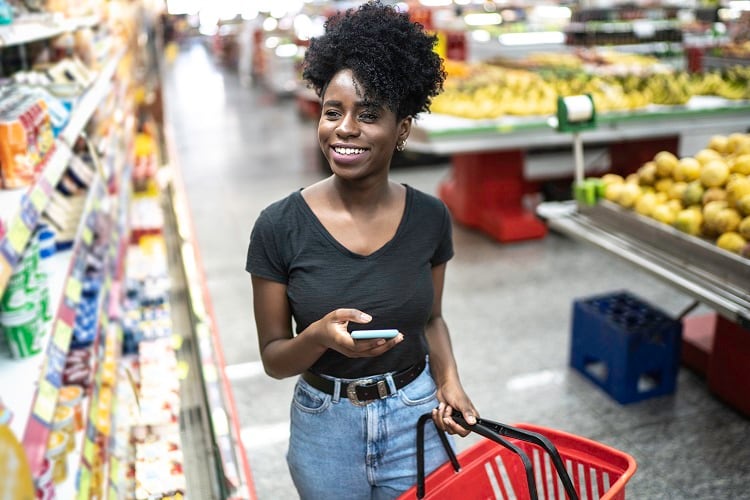UK smartphone app Impact Score is on a mission to help shoppers make ‘simple, informed decisions’ that will allow them live a more ‘sustainable lifestyle’. In doing so, the start-up hopes to encourage businesses to boost their sustainability credentials.
Since launching on the market in 2018, the app has gained a significant following amongst brands and consumers alike.
“We already rate more than 280,000 supermarket products across 14 different sustainability measures, and we provide that information to shoppers via our free smartphone app, which over 80,000 people have downloaded so far,” Impact Score co-founder Ian Yates told FoodNavigator.
From gender pay gaps to CO2 emissions
The idea for Impact Score dates back to 2016, around the time the infamous Panama Papers were released. The leaked documents pointed to several counts of alleged tax evasion, which got Yates and his colleagues brainstorming.
“We were having a fierce debate in the office about whether we should buy coffee from [UK coffee chain] Costa or a local coffee shop, and how we could be sure both were paying a fair amount of tax,” he recalled.
“That developed into an idea of being able to walk down the high street and search any company to see if they paid their fair share of tax. The idea for Impact Score was born.”
As the concept developed, more measures than ‘just tax’ were added, including companies’ gender pay gaps, CO2 emissions, and a ‘feedback loop’ that allowed consumers to share their views on a particular business’ behaviour towards society and the environment.
The Impact Score Company app launched around this time, allowing users to search companies’ behaviours.
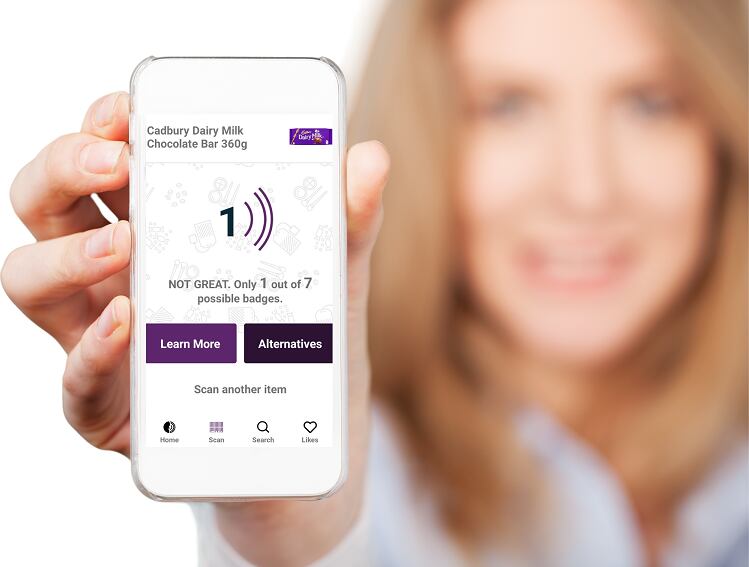
Impact Score’s second smartphone app, Impact Score Shopping, was then developed to focus on the sustainability of supermarket products. Since launching in 2018, the app has since been helping shoppers ‘live more sustainably’ by finding ‘better’ products, said Yates, adding that ‘better’ in this context means more sustainable or nutritious.
“The same principle was adopted, searching or scanning a product and bringing transparency to the consumer, quickly and easily.”
The nuts and bolts of Impact Score Shopping
At a product level, the app assesses up to 14 criteria. Which assessment measures are applied depends on the category of product, but could include factors such as the use of sustainable palm oil, recyclable packaging, animal welfare, as well as monitoring whether the product contains any chemicals of concern.
“It is not for us to deem one product to be more ethical than another,” Yates explained. “We are measuring the nutritional and sustainable nature of the product based on data provided by the manufacturer and referencing this against more than 30 subject matter partners, such as RSPCA, RSPO, Fairtrade and the Rainforest Alliance, and what they deem to be a more sustainable or nutritional product in their area of expertise.”
For example, the low carbon badge comes from academic studies from WRAP and Poore & Nemecek, and healthier options come from data collected by UK Food Standards Agency (FSA) and the NHS.
“We aren’t, nor do we want to be, an assessor in our own right. We want to be a source trusted by consumers.”
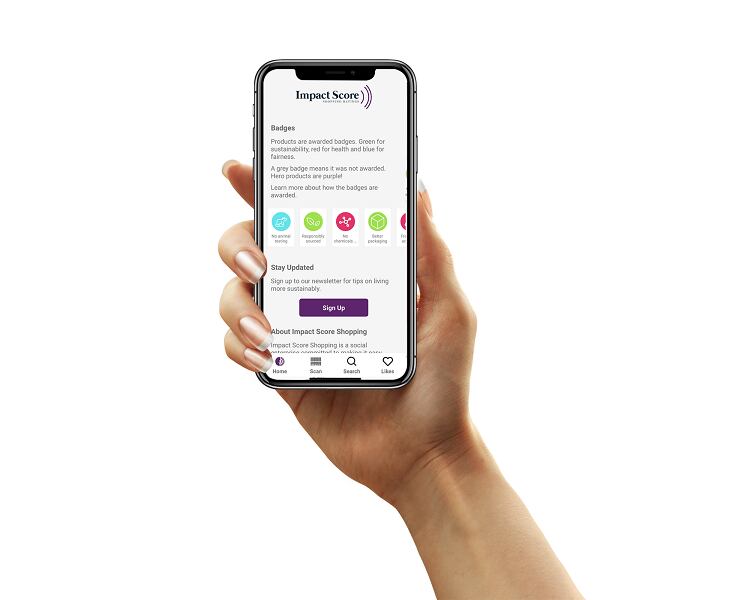
Impact Score has developed algorithms that use these data points to calculate the overall assessment and rate the companies accordingly.
Yates believes shoppers want more information than just a simple, single score, but is also open to consumer feedback. “We are looking into whether we simplify this with an A-F rating, similar to the energy rating system you see on electrical goods, but we will be guided by our users when we survey them in February.”
A growing category
An increasing number of smartphone apps are being developed to help shoppers make more informed decisions concerning health and sustainability in-store.
French smartphone app Yuka, for example, aims to help consumers choose ‘healthy’ products, meanwhile Setai combines products’ CO2 footprint with their health score to ‘empower consumers’.
Impact Score understands that sustainability means different things to different people. It sets itself apart, the co-founder explained, by being a ‘trusted source’ measuring products in 14 sustainability categories – from carbon to nutrition, animal welfare, sustainable production and sourcing.
“While carbon and net zero is the hot topic of the day, last year it was plastics and before that, palm oil,” we were told.
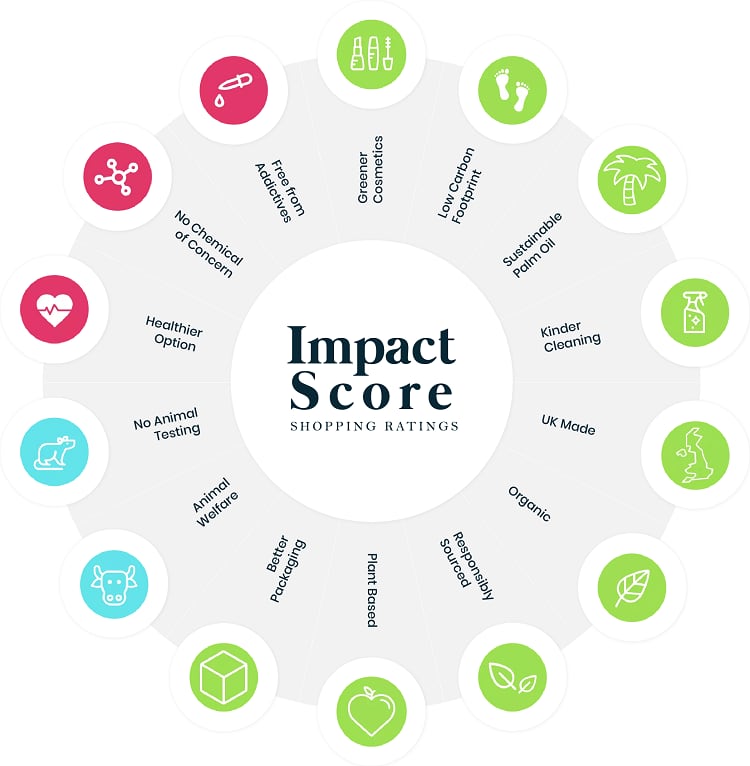
“Our focus is on shoppers and ensuring we measure and rate the things they care about. With 80,000 users, we get loads of feedback and are continuously adding new criteria to our technology platform. For example, our users want to see how responsible or ethical the company is, so the next measure we add will take the data around the company gender pay gap, overall CO2 emissions, and whether it pays the real living wage etc, and that will be another measure for the company to achieve.
“The continual enrichment of our data helps our customers make more informed decisions through using our app.”
Next steps
Impact Score works with academics from the UK’s University of Chester to determine how best to measure products’ sustainability credentials, including what data it should be leveraging, from whom, and what other data can enrich its platform.
The app doesn’t currently measure companies’ soy production methods, for example, but Yates said the team at the university has flagged this and Impact Score is investigating certification standards.
“As you would expect, we need to ensure the ratings are accurate and consistent to retain the trust of our users and the industry, that’s actually another point of difference, a lot of work goes into this, including working with academics to validate the processes we have for validation,” we were told.
Moving forward, Impact Score is interested in incorporating more measures of supermarket products; more sectors such as fashion, technology, and financial services; and expanding internationally.
However, such plans are dependent on user feedback, as well as on Impact Score finding the ‘right partners’ and investors to work with.
“We are at an early stage of speaking with some potential investors and we are also talking to some retailers and brands about how we can work together, as the reality is we will reach most consumers quickly by working with these groups,” said the co-founder.
“We are also cognisant that we mustn’t lose our independence and want to stay away from using the app simply as an advertising or marketing channel for products. We want the ‘right’ partners rather than just ‘any’ partners.”



